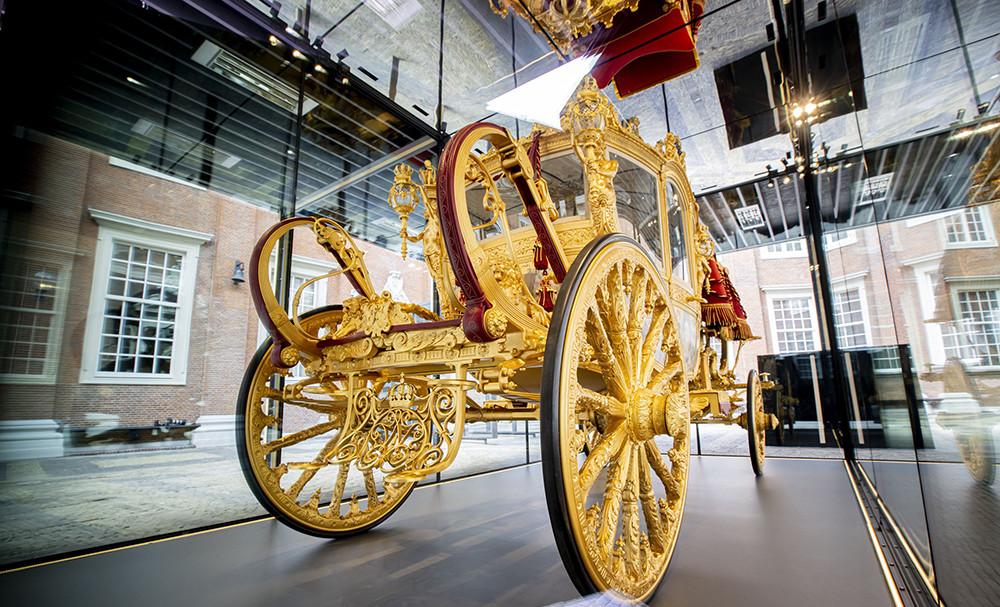Recently, King Willem-Alexander of the Netherlands announced that he would stop using the golden carriage of the Dutch royal family to face up to the country's colonial history and promote domestic unity.

The Golden Carriage. IC diagram
According to the BBC on January 13, in the face of a long debate in the Netherlands about its history of slavery, the country's King William Alexander recently announced that he would stop using the Dutch royal family's historic golden carriage. The carriage has not been used since 2015 and has undergone a lengthy restoration project. After the restoration project ended in June 2021, the carriage has been on display in a glass cabinet in the Amsterdam Museum.
On June 15, 2021 local time, the Museum in Amsterdam, the Netherlands, was exhibited by the Golden Carriage. IC diagram
The Dutch royal family's golden carriage, named De Gouden Koets, means "golden carriage", dates back to 1898 and was presented by the citizens of Amsterdam to Wilhelmina, then Queen of the Netherlands.
The focus of controversy and criticism is a triptych on the painted panel of the golden carriage that glorifies Dutch colonial history. Titled Tribute from the Colonies, the painting depicts blacks and yellows offering goods such as cocoa and sugar cane to a white woman who symbolized the Netherlands, while a white man next to a white woman hands a black boy a book — the author of the portrait, Nicolaas van der Waay, said in 1896 that the book was a Dutch gift to the colony symbolizing "civilization."
King William Alexander admitted that the golden carriage offended many people, but more importantly, that people faced this history together. "Simply banning historical objects and symbols is obviously not the solution," he said. Instead, what we need is a deeper and longer period of time to achieve concerted efforts and joint efforts. Such efforts can bring us closer together, rather than dividing each other. He added that as long as there are Dutch people living in the agony of discrimination, history will still cast a shadow over the here and now.
Anti-racism activists in the Netherlands expressed support for the move. Mitchell Esajas, co-founder of the Black Archive in Amsterdam, said that in history, slavery was a system of crime and violence against humanity, and that one cannot look at history from the perspective and values of the present.
In recent years, the Netherlands has made many efforts to combat racial discrimination and promote solidarity. On 1 July 2021, Amsterdam Mayor Femke Halsema apologized for the city's role in the slave trade, and on 10 September 2021, Utrecht City Council decided that people could change their slave-tinged names for free without having to pay the 835 euros (about 6,091 yuan) for the name change, according to the BBC.